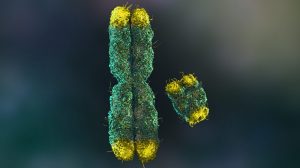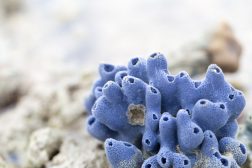Cercaria
The free-swimming trematode larva that emerges from its host snail; it may penetrate the skin of a final host (as in schistosoma of man), encyst on vegetation (as in Fasciola), in or on fish (as in Clonorchis), or penetrate and encyst in various arthropod hosts. Body and tail are greatly varied in form, and specialised function is adapted to the particular life cycle demands of each species.
See: sporocyst, redia.
Origin: g. Kerkos, tail
Dictionary > Cercaria
You will also like...

Water in Plants
The movement of molecules (specifically, water and solutes) is vital to the understanding of plant processes. This tuto..

Human Reproduction
Humans are capable of only one mode of reproduction, i.e. sexual reproduction. Haploid sex cells (gametes) are produced ..

Sensory Systems
A sensory system is a part of the nervous system consisting of sensory receptors that receive stimuli from the internal ..

Population Growth and Survivorship
This lesson looks at population attributes, regulation, and growth. It also covers population genetics, particularly gen..

Chromosomes X and Y and Sex Determination
This tutorial looks at sex determination via the sex chromosomes, X and Y. Read it to get more info on X and Y chromosom..

Primitive Animals
Life, as we know it today, is presumed to have started in the sea and many of them were likely eukaryotic animal-like or..

